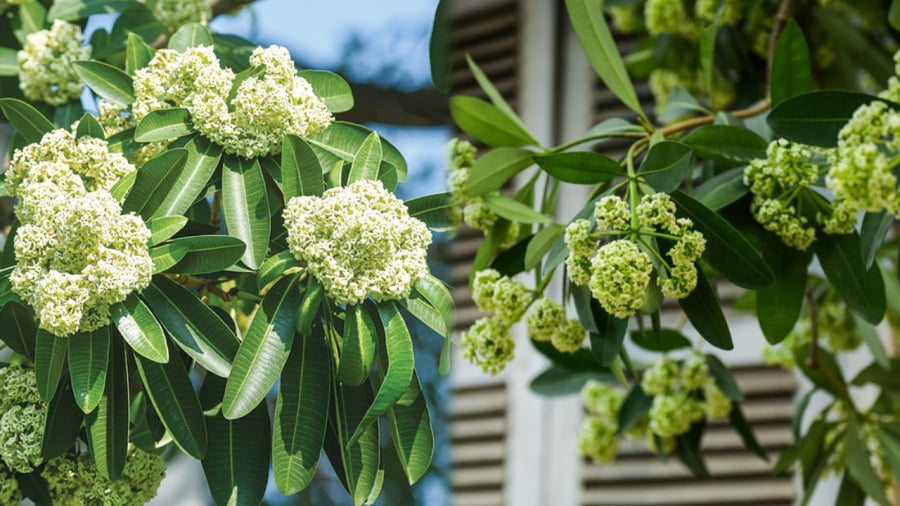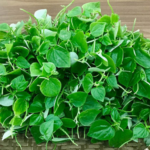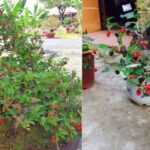**Alstonia Scholaris: The Fragrant and Medicinal Tree**
The Alstonia Scholaris, commonly known as the milkwood tree, is a member of the Terminalia Catappal family and is native to several Asian countries. This small-sized, tropical tree has a unique presence with its grey-black bark covered in a sticky, white substance resembling milk – a feature that gives it its distinctive name.
Growing to heights of 2-6 meters, with some specimens in tropical forests reaching up to 40 meters, the Alstonia Scholaris boasts a wide canopy and numerous intertwining branches. It is often planted for shade and to enhance landscapes. The tree bears fragrant, hermaphrodite flowers that bloom in clusters during the fall season, usually from October onwards. These flowers come in shades of white, yellow, or pink, depending on the specific growing conditions, and exude a strong, sweet fragrance, especially at night.
The Alstonia Scholaris is well-suited for planting along roadsides, in school yards, residential areas, and parks due to its wide canopy, which provides ample shade. The tree’s blooming season is a hallmark of fall, with the sweet fragrance of its flowers filling the air. However, due to its strong scent, some people may find the smell overpowering, leading to discomfort, headaches, and dizziness. Those with allergies or respiratory issues, such as asthma or sinusitis, may experience further irritation from the fragrance.

Alstonia Scholaris provides shade and aesthetic appeal to landscapes.
In Vietnamese culture, the Alstonia Scholaris is associated with a legend of unrequited love, earning it a symbolic status for romance. The tiny white blossoms, when in full bloom, create a romantic ambiance with their sweet fragrance, evoking emotions of love and affection.
The decision to plant the Alstonia Scholaris in front of a house is a personal choice. Homeowners with a spacious yard who appreciate the tree’s fragrance may opt to plant it. Typically, one or two trees will emit a pleasant aroma. However, in areas with a high density of these trees, the collective blooming can result in an overwhelming scent.
Despite its potential for causing allergies, several parts of the Alstonia Scholaris tree are used medicinally in traditional Eastern medicine. The bark contains chemical compounds like echitenin and ditamin, which are incorporated into various remedies. The tree’s medicinal properties include a cooling nature, a bitter taste, and the ability to detoxify, regulate the body, treat coughs, alleviate skin issues, and address menstrual irregularities, among other ailments.
Modern pharmacological research has also revealed the tree’s anti-inflammatory, anti-asthmatic, and analgesic properties. The leaves, in particular, contain methanol, which has potential in preventing and treating diabetes by acting against alpha-glucoside.
*Disclaimer: This information is for reference only and should not be solely relied on for medical advice.*





































